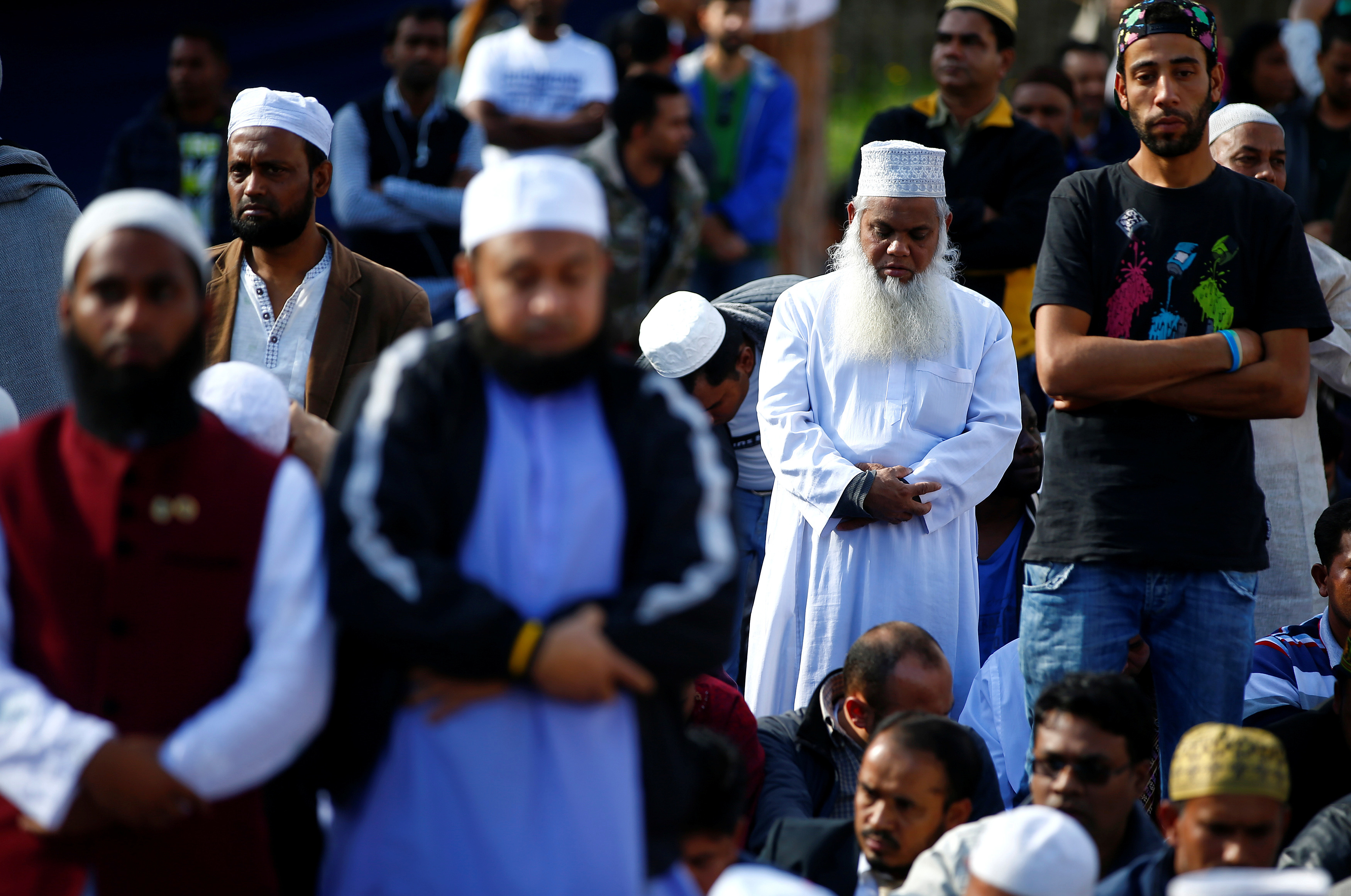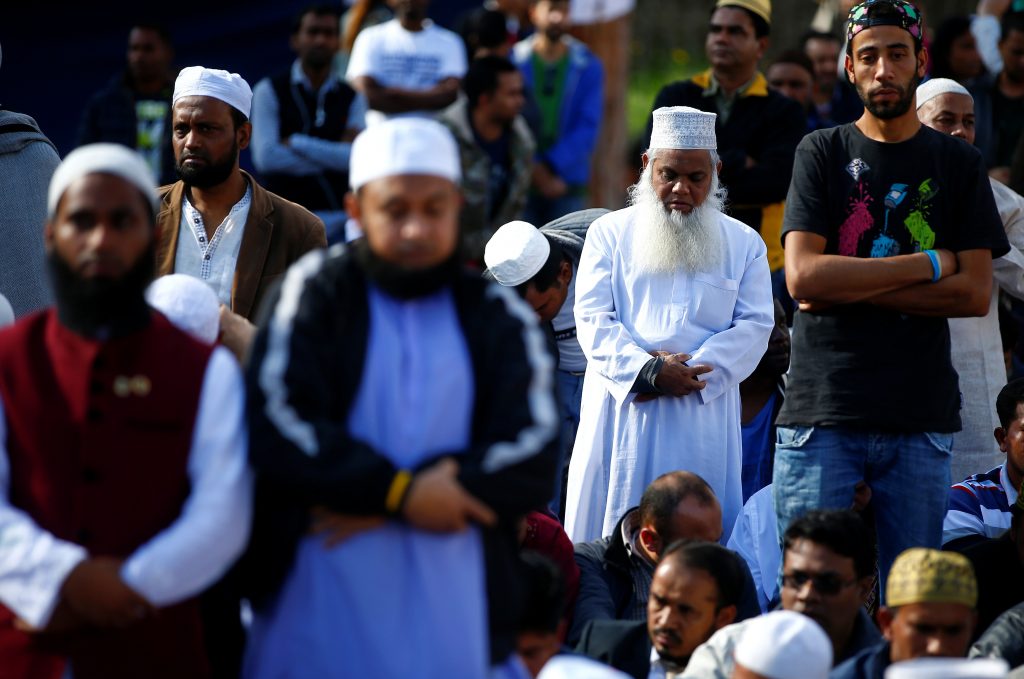 Does Europe have an “Islam problem”? The recent string of terrorist attacks on the Continent suggests that the answer is self-evident. However, crisis response must start with a careful characterization of the issue at hand. Is Europe, then, confronted with the challenge of “integrating Islam”? Ultimately this might be true, but the limits of the argument are too many to ignore.
Does Europe have an “Islam problem”? The recent string of terrorist attacks on the Continent suggests that the answer is self-evident. However, crisis response must start with a careful characterization of the issue at hand. Is Europe, then, confronted with the challenge of “integrating Islam”? Ultimately this might be true, but the limits of the argument are too many to ignore.
At stake is the welfare of millions of Muslims in Europe who live day to day in fear for their safety, as well as that of millions of Europeans who insist that they no longer recognize their communities because of Muslim immigrants.
Describing the challenge in terms of “integrating Islam” falls short if (1) the problem isn’t about “integration,” and/or (2) the problem isn’t about “Islam.”
(1) Two narratives compete when allocating blame for the marginalization of Muslim communities: Muslim minorities’ alleged unwillingness to integrate; and “native” majorities’ alleged discrimination against these communities.
A recent Eurobarometer poll illustrates the extent of Europe’s split personality on the matter. Sixty percent of EU citizens accept that “discrimination” is the main problem; yet 73 percent say that “Muslims don’t want to integrate” in the first place.
To make sense of the contradiction, it is helpful to note that the areas of Europe where Islam is most visible don’t strictly overlap with those that most stridently reject Muslims. Instead, anti-immigration sentiment in Europe emerges at the margins of Islam’s visibility. In these borderlands, “native” communities can build up a picture of the “Islamic evil” that they think is “coming for them,” untrammeled by any direct experience of actually coexisting with migrants.
On a continent-wide scale, for instance, Eurostat finds that anti-immigration sentiments are especially high among Central and Eastern European nations where Muslim immigration is essentially non-existent. The same phenomenon might be true at the local level in that discrimination against Muslim immigrants arguably stems less from their neighbors than from those who fear ever becoming such.
(2) To resolve the dilemma between integration and discrimination, it is helpful to test the idea that the source of Europe’s social and ultimately security-related problems is not primarily religious, but socio-economic. In other words, the challenge might not be that Muslims have failed to integrate, but that they have all too successfully integrated into societies that happen to suffer from vast economic inequalities. If so, the relevant “threatened majorities” and “threatening minorities” are not “the native-born” versus “the Muslims,” but the “insiders” versus the “outsiders” of European social compacts that tend to be generous to the extent that they are exclusive.
In other words, before we accept that we have a Huntingtonian “clash of civilizations” on our hands, we would do well to reflect on the fact that, according to the French statistical office INSEE, the average monthly income of “native” French nationals is about twice that of immigrants born in Africa.
Indeed, it is difficult to accept that the religion of Islam is the source of Europe’s problems when the perpetrators of the attacks in Orlando and Nice knew nothing of their alleged religion, and egregiously failed to follow its most basic precepts.
To be clear, this only suggests that “Islam as a religion” isn’t the issue. “Islam as a cult,” or “Islam as a cheap rallying cry,” deserves more of the blame. The terrorist attacks in Paris, Brussels, and Nice over the past year are best explained by the fact that Islam has turned in part into the cultish enabler of mental illness (what psychologists describe as “folie à deux”, i.e. shared psychotic disorder). Even though European governments have stretched the argument that recent attacks were primarily caused by insanity (in order to escape blame for counterterrorism lapses), the characterization is not without merit. Actual or web-based networks (respectively born in the Syrian crucible, or remotely inspired by it) turn into cognitive bubbles that allow the mentally ill to embrace their delusions, and to turn their delusions into action—as cults tend to do. If this is true, Islam’s problem is simply that the same small proportion of the mentally ill that exists among every community is now being empowered by a cultish avatar of the religion.
In any case, it is prudent to disaggregate Islam and its followers, and ask ourselves which version of Islam we are talking about in the first place.
A religion is what the faithful make of it. Is Islam sick today? Perhaps so, but only among some of its strands. These strands of Islam (especially its more fundamentalist expressions, namely Salafism or Wahhabism) did not appear on the European scene by accident. They have been deliberately engineered out of the cradle of Middle Eastern conflicts. France’s Senate, for instance, estimates that 2,000 imams operate in the country, out of which a shockingly low 20-30 percent have French citizenship. Three hundred are officially seconded by Turkey, Algeria, and Morocco; while one hundred mosques are assessed to be “extremist”—likely because Gulf money made them so.
This matters. If there is no such thing as a single “Muslim community,” it is unfair and unhelpful to blame it wholesale after each terrorist attack, or to expect this non-existent community to be an ally in “countering violent extremism.” It has long been a trope of European political science that Muslims don’t vote as a bloc. It is time to accept that they don’t act as one either. Muslims can’t possibly carry the burden of collective guilt for terrorism, and can’t produce collective answers to it, because they do not make up a “collective” in the first place.
This suggests a fundamental design flaw in European countries’ efforts to create a “national Islam” in order to counteract the nefarious influence of foreign money, foreign norms, and foreign imams in their midst (France, for instance, has attempted since 2003 to will a “French Council of Islam” into existence). Not only is Islam as a religion too decentralized to adopt these top-down structures, but Islam as a community is too fractured to embrace them.
Nothing here provides a silver bullet, or delineates what is to be done, but it is surely helpful to think through what not to do: “First, do no harm.”
Erwan Lagadec and Jeffrey Gedmin co-direct the Atlantic Council’s Master Class Series on Europe—monthly meetings on strategic issues with top experts, government officials, and private sector representatives. The views expressed here are the author’s alone.
Image: Muslims prayed in front of the Colosseum in Rome on October 21 to protest against the closure of unlicensed mosques. (Reuters/Tony Gentile)
